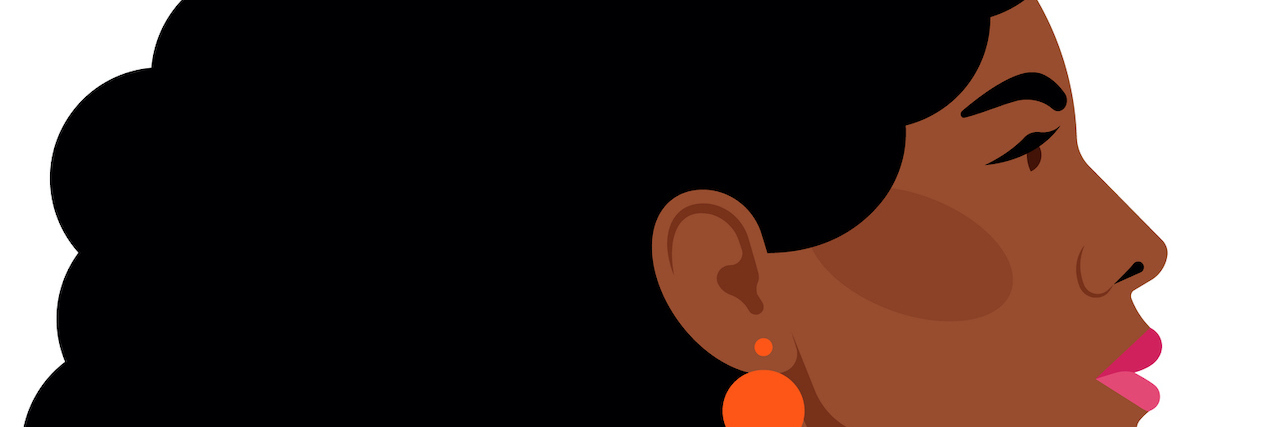I was diagnosed with COVID-19 for the second time in two years. This time, I had been traveling while masked and apparently still couldn’t handle being in other people’s bubbles. After being diagnosed, flashbacks of being hospitalized last year hit hard. I remembered feeling like I couldn’t get clean enough, like I didn’t have supportive family and friends, and ultimately exhausted. Fear and fatigue has often plagued me. After losing my mother in high school, I was told there was zero tolerance for needing more sleep and wanting to do less. I was punished and didn’t have my mother as a support system.
Over the last decade or so, I have worked hard on processing my grief, connecting with my identity as a Black woman and transracial adoptee, and honoring PWIs (predominantly white institutions) less than I was taught to initially. Through my myriad of therapists, I told them about my depressive episodes. These therapists (inpatient and out patient treatment) could only see one thing… an educated Black woman. I spoke “well,” I had graduated college, I could crack a joke, while being self-reflective and I held down “good jobs.” Meanwhile, I devoured self-help books and knew something was off. I mentioned the possibility of having hypomania, because I would come out of my depressions and overcompensate, sleeping less than four hours a night. However, my therapists (most of them white) brushed off my concerns, saying that what I viewed as hypomania was “normal” behavior.
I’m here to tell you that it wasn’t normal. My productivity was viewed through the lens of white capitalism. There’s this idea that you can’t have friends or a successful career when dealing with mental health issues. There’s even less support when a therapist sees that you have the ability to verbalize your emotional experiences correctly. I have worked as a therapist and want to continue to do so, but this awareness of diagnoses mixed with proficiency in evidence-based/natural treatments seems to get me less treatment. Ironically, I finally had a severe manic episode in 2020, after years of being told I was making up my symptoms for attention. Bipolar 1 become a diagnosis that opened doors to compassion from the mental health industry, for the first time on my therapy journey.
Presently, I have been refocusing on who I look for while healing. Subscribing to the Patreon accounts of other Black women who are transparent about their struggles, as well as successes, has been life changing. I am reading books like “The Body is Not an Apology” by Sonya Renee Taylor, and “Nobody Knows the Trouble I’ve Seen- The Emotional Lives of Black Women” by Inger Burnett Zeigler, PhD. I am making sure my own material surrounding complex trauma and identity is accessible but also compensated for. These women and role models celebrate rest, self-care and also unashamedly self-love. We access these things by resetting.
By struggling with COVID again this year, I have had to reevaluate my normal. Depression makes me fatigued 75 percent of my days. It gives me headaches and anxious tendencies. As many times as people have told me to slow down, when you are fearful that you may no be able to afford food, your “feelings” take a back seat. I refuse to do this any longer. I will take this quarantine time to self-care for myself physically and to say no. I will also reach out to my strong friendships and celebrate my stability, involving medication and strong environmental restructuring. I will also stop ignoring more subtle symptoms of exhaustion.
As I get back to work for the first time in more than a year, I am grateful to be part of a new team that focuses on disability rights and transparency surrounding every employee’s individual needs. I would like to remind Black women that you can still be strong, while tired, but we don’t need to be both. We are so used to doing it all, that sometimes when we take a step back, we don’t know how to act. I would like to remind all the Black women who are struggling with emotional and physical wellness that you are not less than. In fact, by limiting your availability, you increase your chances of getting well. In a world where we are often used as entertainment and scapegoats, we must put ourselves unapologetically first. Rest and processing emotions work wonders for our futures and our immune systems. So next time you need to nap, cancel that date, because you’re worth it.
Getty image by Atlas Studio

